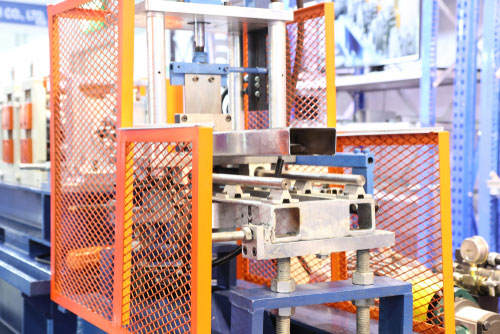Written by Occupli Safety Consultant Jake Bumpus
Under the Safety, Health and Welfare at Work (General Application) Regulations 2007, there is a duty on employers to ensure the safety of all machinery provided for use at the workplace. However, what actions should be taken by management if a safety guard is reported as being either defective or bypassed?
In the immediate term, it is clear that the machine is not safe to use in its current state, and therefore use of the machine should be prohibited until the safety guard can be repaired and/or replaced. During this time, the machine should be isolated from all sources of energy, any hazardous stored energy released, and then locked out and tagged out.
The next consideration should be whether it is appropriate to repair the existing safety guard or investigate whether the design/concept of the existing guard contributed to it becoming defective and/or being bypassed by workers. For example:
- If the existing guard was a fixed guard, but workers were required to frequently access that part of the machine to clear dust, then a fixed guard may not be appropriate. Instead, an interlocked access panel which stops the motion of the equipment on opening may be a better option.
- If the existing guard was an interlocked guard, but was of such a design that it was easily defeatable (e.g. non-coded magnetic interlock which could be defeated using a common magnet), then it should be replaced by a different design which is less easy to defeat (e.g. coded safety switch).
- Additionally, we should consider whether the overall design of the equipment is fit-for-purpose. For example, if workers are frequently having to clear dust from the moving equipment, then perhaps additional local extract ventilation that reduces the amount of dust generated at source would be appropriate.
The considerations above are primarily about the suitability and adequate of engineered/technical controls, but the same degree of consideration should be given to the organisational controls and safety culture in the organisation. The fact that an important safety guard was being regularly bypassed by workers is a very poor indicator of the overall safety culture.
A first step to improving this may be to roll out a training programme to workers which highlights the important aspects of machinery safety, including why bypassing safety guards is so dangerous. However, the organisation should also investigate the human factors around why the workers bypassed the guard in the first place, and why this practice was not observed and/or stopped by supervisors/managers.
Occupli Consultancy is a leading provider of Machinery Safety Support to clients nationally. Our specialists provide practical advice, training and machinery solutions to support your particular needs. Our team work to legislative requirements and benchmark against industry best practice.
Similar Topics:

